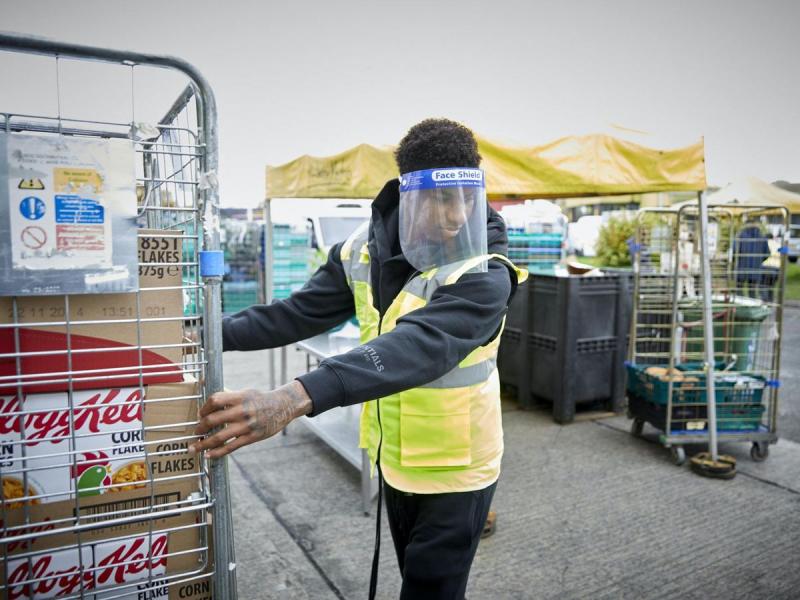
England footballer Marcus Rashford has become an undisputed national hero in the last year. The success of his campaigning against child poverty, enforcing multiple government U-turns and supporting impoverished families across the country, has captured the national imagination and underlined the power athletes wield in enabling change.
After raising over £20m to provide free school meals for children living in poverty during the first lockdown in March 2020, Rashford then wrote an open letter to the government calling for a U-turn on its decision not to provide free school meals during the summer holidays. Within 24 hours, the government had reversed its decision. He achieved the same feat in the October half-term before last week calling out the government on the inadequacy of the £30 food packages that were sent to those in need. He has done all of this while setting up the Child Food Poverty Task Force and providing meals to children across the country outside of government action.
It has been an extraordinary display of political lobbying and successful campaigning for a social issue, and presents an interesting example of the effectiveness of activist campaigning.
As you would expect, brands have been keen to associate themselves with Rashford’s campaign, notably with The Co-op tweeting “We’re with you @MarcusRashford” and providing students who normally receive government-funded school meals with Co-op gift cards. Burberry then announced Rashford as its Winter Ambassador, alongside a range of charitable commitments in the way of tackling child hunger. These cases demonstrate the effectiveness of brands retrospectively attaching themselves to campaigns, but there are bigger lessons to be learned here, specifically around how the campaign became so successful in the first place.
The genius of Rashford’s campaign was its simplicity. Its strategy, tactics and execution were rooted with a clear positioning based on his personal experience. This is a 23-year old Mancunian, who grew up in one of the poorest districts of the city, standing up for hundreds of thousands of others like him. No one can question his motive or accuse him of jumping on a bandwagon.
The cause is inclusive and is not fundamentally about politics - it is about human rights and children having food to eat. He isolated his argument to a place where it cannot be questioned and is universally supported. His modus operandi has been to ensure that good sense and humanitarianism prevails.
For brands, the lesson here is that if you are going to take an activist stance, the importance of a clear and concise argument cannot be understated. Taking sides with a social cause can be a difficult decision for brands to make, with fears of public scepticism and alienating those who take a different view on the issue close to hand. But as Rashford has shown, having a clear, authentic position and a concise argument is the way around this.
It has been a shining example of the effectiveness of taking a stand, and it could serve as a breakthrough moment in how we perceive and make sense of activist campaigns. Rashford himself has said: "It's becoming more normal that people speak out on topics that they believe in and I think it's just positive for the future."
We’ve seen this in other arenas too, with the Starbucks advert promoting trans-equality and brands such as Nike taking a strong stand on the Black Lives Matter movement, showing that brands are, as Rashford puts it, speaking out on topics they believe in. The wider trend here is that taking an authentic position on a social cause is something brands should feel more empowered to do than ever in 2021.
Rashford’s achievements have shown us that activism with authentic and passionate delivery, across the right platforms, in the right tone, and at the right time, remains an extremely powerful combination.
